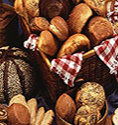Vehicle for delivering plant sterol
Most clinical trials have been conducted using plant sterols or stanols added to spreads. As long as plant sterols are consumed with a meal to stimulate biliary flow, they can effectively lower LDL cholesterol on the background of various types of basal diets and food vehicles. Plant sterols are efficacious when consumed in: oil: water emulsions [68,69]; water as lecithin micelles [22]; yogurt [40,70]; low fat filled milks [42,44,71]; chocolate [105]; cereal; snack bars, breads, and beverages [66,72]; and beef/hamburger [73,74]. Efficacy of a soy stanol-lecithin powder in reducing cholesterol absorption and LDL-C has been evaluated in a randomized, double-blind parallel study [75]. The subjects who followed a Step I diet consumed soy stanol-lecithin powder in a beverage. The provided daily dose of plant stanols was 1.9 g. The reductions in blood cholesterol and LDL cholesterol were 10.1 and 14.4%, respectively. In another group of subjects, cholesterol absorption was measured using 625 mg stanols provided in beverage or egg whites. Stanol-lecithin reduced cholesterol absorption by 32.1% and 38.2 % when consumed in beverage and egg white, respectively.
The reduction in LDL cholesterol reported, using the previous different vehicles, ranged between 7–14 %, which is close to the reduction in LDL cholesterol reported in studies that used fat spread as a vehicle for delivering plant sterol [25,37,76-82]. A recent controlled clinical trial has shown that the intake of plant sterols provided in low-fat and non-fat beverages did not affect lipid profiles in moderately hypercholesterolemic individuals [83]. The finding of this study was contrary to the findings of other studies reporting that plant sterols were effective in reducing blood cholesterol even when incorporated into low-fat or non-fat foods [40,42,44,70,72]. This discrepancy may be related to the fact that the plant sterols must be added to the low or non fat food matrix in such a way that the plant sterols solubilize, or remain as small crystals over time. In products such as milk, the milk fat globule membrane components may enhance the absorption of cholesterol [44,68,69], but also aid in solubilization. Pouteau et al. [44] described a rapid filtration and detection method to quantify plant sterol crystals. The authors also used light scattering techniques to quantify the size of the crystals as a function of storage time of the milk products. The method of dispersion, processing, and use of emulsifiers, surfactants, and crystal habit modifiers will affect the success of plant sterols in non-spread vehicles [42,44,71,84,85].
Commercially, plant sterols are currently contained in bars (Logicol-Australia, Benecol-UK), vegetable oils (Ekona-Japan; NutraLease Canola Active-Israel), orange juice (Minute Maid Heart Wise containing Cargill CoroWise plant sterols) [45], mayonnaises (Logicol-Australia), milk (Benecol-UK, Logicol-Australia, SereCol-Argentenia), yogurt (Logicol-Australia; Benecol-UK), yogurt drinks (Benecol), soy milk (Pacific Foods), meat and soups (Raisio-Finland), and green teas (Chol zero, Korea). Plant sterols are also being sold or developed mixed with other functional ingredients such as: fiber (Unilever Fruit D'or-France); healthy oils (Benecol Olive Spread-UK); non-absorbable diacylglycerol (Kao-ADM Econa Healthy Cooking Oil; Enzymotec MultOil Platform, ArteriCare products, Israel); almonds, soy protein and viscous fibers [86]; and minerals [87-89]. There is also interest to combine plant sterols with antioxidants, such as flavonoids, quercetins, and catechin; and a spice mixture developed by Selako, and marketed as Flavomare in Scandanavia. It is only a matter of time before ingredients such as conjugated linoleic acid (CLA) are mixed with plant sterols in various vehicles (e.g., Clarinol's CLA has received GRAS status for addition to milks, yogurts, bars, etc.).
Various manufacturers also sell plant sterols in supplement form, and there is interest to develop plant sterols as drugs (e.g., Forbes' FM-VP4 drug candidate). Plant sterols may also be combined with other drugs that lower cholesterol through different mechanisms of action, including statins and ezetimibe [90,91]. Recent evidence suggests that patients who had previous actue coronary syndrome benefited from aggressive LDL lowering with statins to levels subtstantially below current target levels [92,93]. This finding provides enthusiasm for developing novel plant sterol-drug and drug-drug combined strategies to aggressively lower LDL cholesterol in some populations. Despite evidence that plant sterols can effectively reduce LDL cholesterol and inhibit cholesterol absorption in vehicles other than spread type vehicles, regulatory agencies have been slow to accept plant sterols in foods other than spreads in some countries such as the USA [94] and Australia [95]. Rigorous efforts underway by food companies and other highly respected organizations to allow claims for plant sterols in foods other than spreads.



